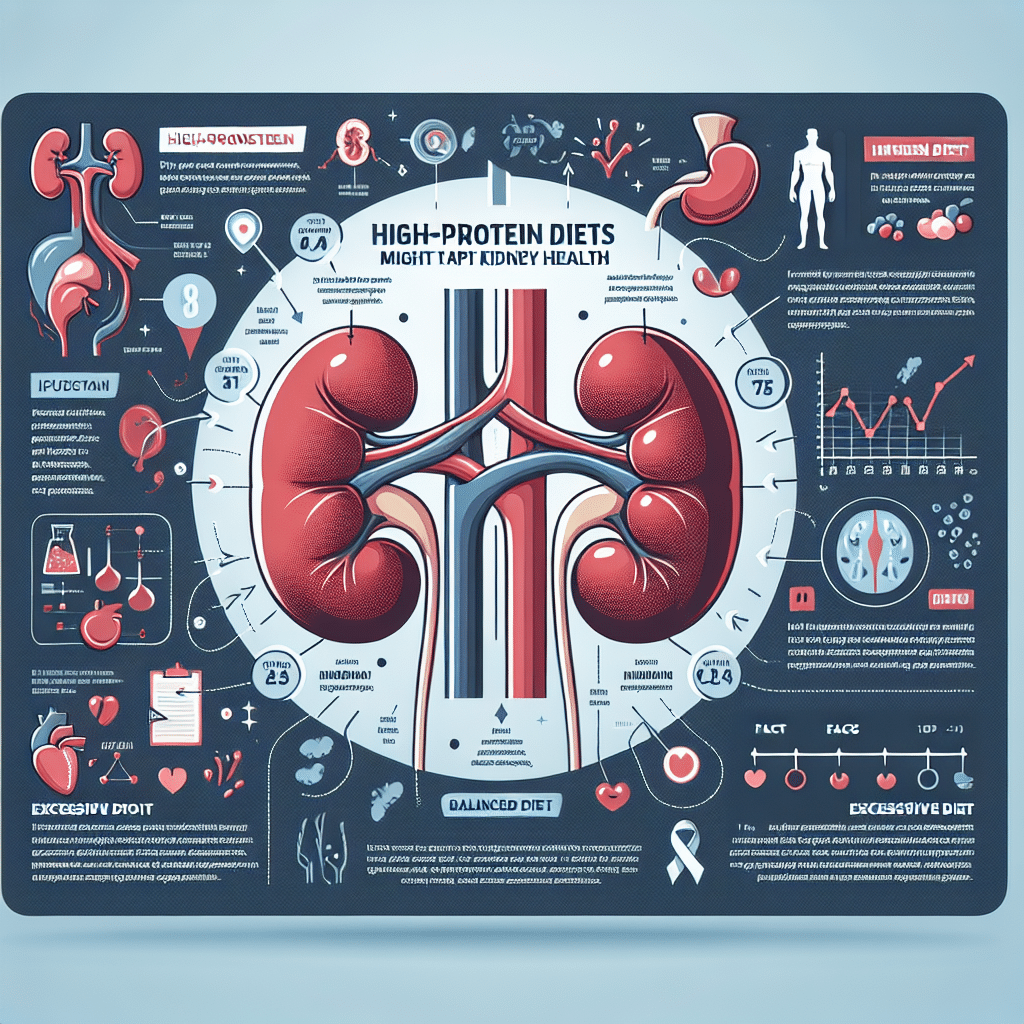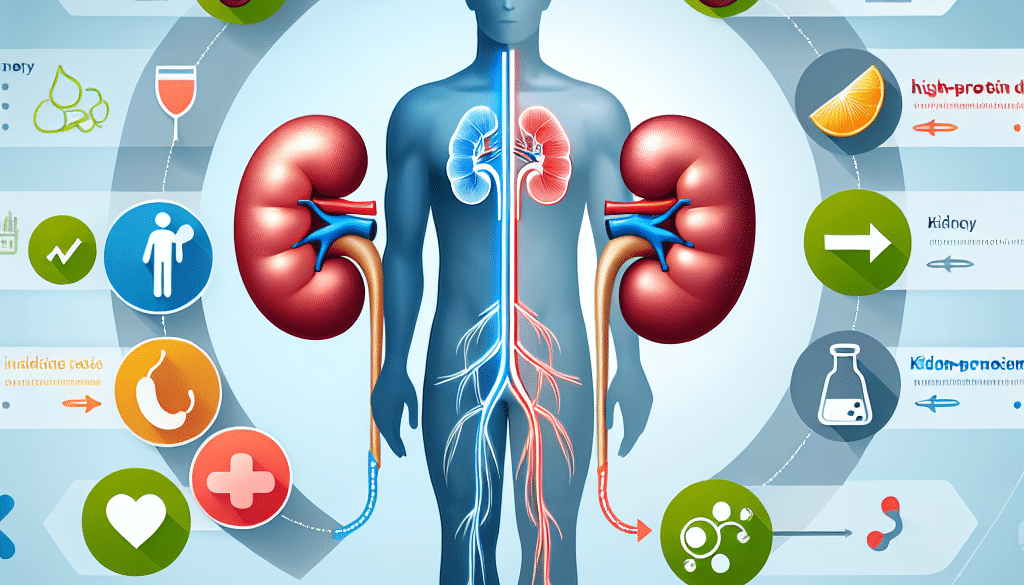Do High Protein Diets Impact Kidney Health?
-
Table of Contents
- High Protein Diets and Kidney Health: A Comprehensive Analysis
- The Role of Protein in the Diet
- Understanding Kidney Function
- Research on High Protein Diets and Kidney Health
- Factors Influencing the Impact of High Protein on Kidneys
- Case Studies and Anecdotal Evidence
- Statistics and Current Recommendations
- Conclusion: Balancing Protein Intake for Kidney Health
- ETChem’s Protein Products: A Healthy Choice for Your Diet
High Protein Diets and Kidney Health: A Comprehensive Analysis

High protein diets have become increasingly popular for weight loss, muscle building, and overall health improvement. However, concerns have been raised about the potential impact of these diets on kidney health. This article delves into the current research to explore whether high protein intake can affect kidney function and what factors may influence this relationship.
The Role of Protein in the Diet
Proteins are essential macronutrients that play a critical role in building and repairing tissues, producing enzymes and hormones, and supporting immune function. The Recommended Dietary Allowance (RDA) for protein is 0.8 grams per kilogram of body weight per day for adults, but many people consume more than this, especially those following high protein diets.
Understanding Kidney Function
The kidneys are vital organs responsible for filtering waste products from the blood, regulating fluid balance, and maintaining electrolyte levels. They process a significant amount of protein byproducts, which has led to concerns about the impact of high protein intake on kidney workload and health.
Research on High Protein Diets and Kidney Health
Studies on the effects of high protein diets on kidney function have shown mixed results. Some research suggests that in healthy individuals, a high protein intake does not harm kidney function. However, for people with pre-existing kidney conditions, a high protein diet may exacerbate their issues.
- A study published in the “American Journal of Kidney Diseases” found that high protein intake did not lead to kidney damage in healthy individuals over a two-year period.
- Conversely, research in the “Journal of Nutrition” indicated that individuals with mild kidney impairment might experience a progression of kidney disease with excessive protein consumption.
Factors Influencing the Impact of High Protein on Kidneys
Several factors can influence how a high protein diet affects kidney health, including individual health status, type of protein consumed, and overall diet quality.
- Pre-existing Kidney Conditions: Those with kidney disease are often advised to limit protein intake to reduce kidney strain.
- Type of Protein: Animal-based proteins may have different effects on the kidneys compared to plant-based proteins due to differences in amino acid composition and associated nutrients.
- Dietary Balance: A diet high in protein but low in other essential nutrients may be more detrimental to kidney health than a balanced diet that includes adequate fruits, vegetables, and whole grains.
Case Studies and Anecdotal Evidence
Case studies have provided insights into the potential risks and benefits of high protein diets on kidney health. For example, bodybuilders and athletes who consume large amounts of protein over extended periods generally do not show signs of kidney damage, suggesting that a high protein intake can be safe for healthy individuals. However, anecdotal reports from individuals with kidney disease often indicate a need to moderate protein consumption to manage their condition.
Statistics and Current Recommendations
Current dietary guidelines recommend that adults get 10-35% of their daily calories from protein. However, the prevalence of high protein diets has led to an increase in protein consumption beyond these recommendations for some individuals. It’s estimated that the average American consumes approximately 1.2 grams of protein per kilogram of body weight daily, which exceeds the RDA.
Conclusion: Balancing Protein Intake for Kidney Health
In conclusion, while high protein diets do not appear to harm kidney function in healthy individuals, those with existing kidney issues should approach high protein consumption with caution. It is essential to balance protein intake with other nutrients and consider individual health status when determining the appropriate level of protein consumption.
ETChem’s Protein Products: A Healthy Choice for Your Diet
If you’re looking to incorporate high-quality protein into your diet without compromising kidney health, ETChem’s protein products are an excellent choice. Their range of collagens, including marine, fish, bovine, and chicken collagens, provide a balanced amino acid profile that supports overall health. ETChem’s commitment to quality ensures that you receive the best protein supplements to meet your dietary needs.
About ETChem:
ETChem, a reputable Chinese Collagen factory manufacturer and supplier, is renowned for producing, stocking, exporting, and delivering the highest quality collagens. They include marine collagen, fish collagen, bovine collagen, chicken collagen, type I collagen, type II collagen and type III collagen etc. Their offerings, characterized by a neutral taste, instant solubility attributes, cater to a diverse range of industries. They serve nutraceutical, pharmaceutical, cosmeceutical, veterinary, as well as food and beverage finished product distributors, traders, and manufacturers across Europe, USA, Canada, Australia, Thailand, Japan, Korea, Brazil, and Chile, among others.
ETChem specialization includes exporting and delivering tailor-made collagen powder and finished collagen nutritional supplements. Their extensive product range covers sectors like Food and Beverage, Sports Nutrition, Weight Management, Dietary Supplements, Health and Wellness Products, ensuring comprehensive solutions to meet all your protein needs.
As a trusted company by leading global food and beverage brands and Fortune 500 companies, ETChem reinforces China’s reputation in the global arena. For more information or to sample their products, please contact them and email karen(at)et-chem.com today.




